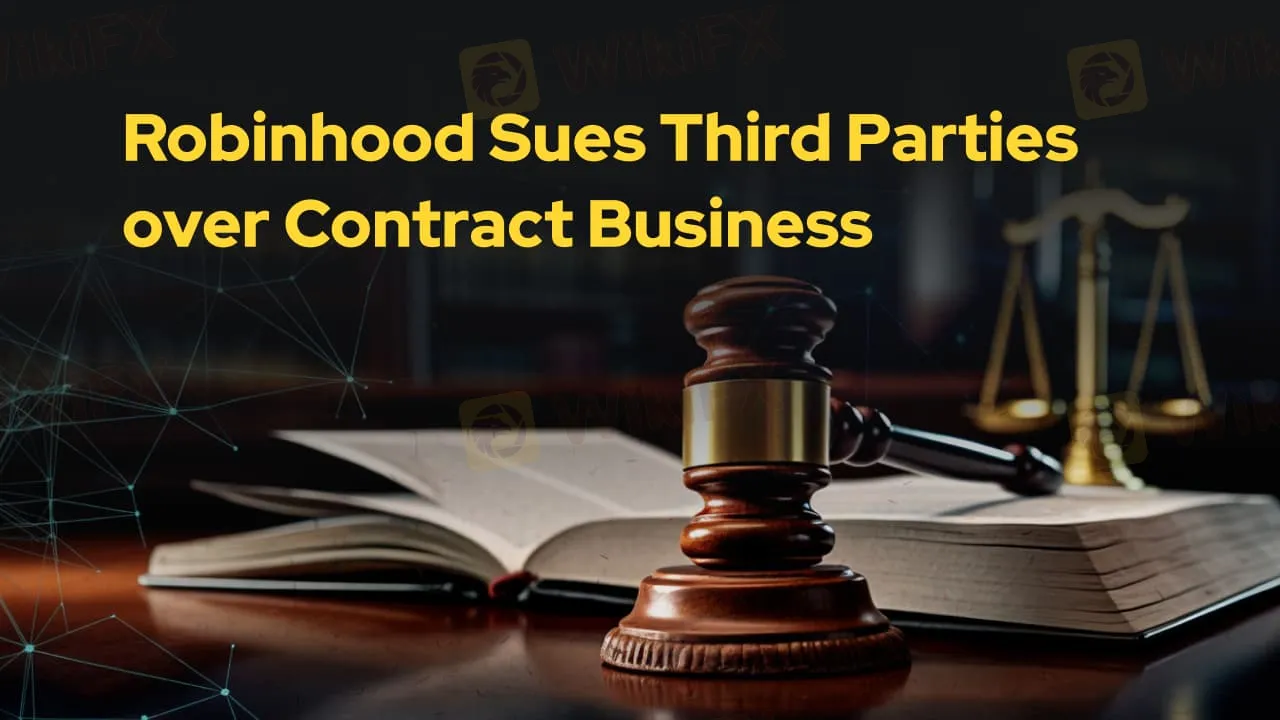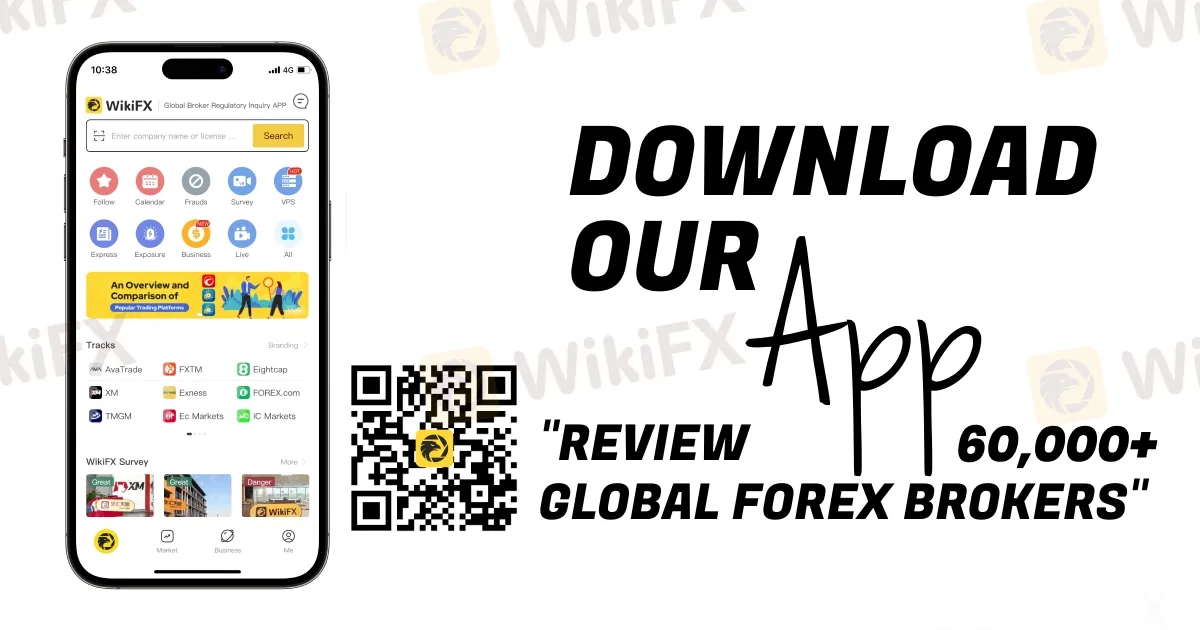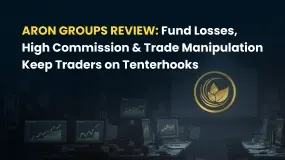Robinhood Sues Third Parties over Contract Business
Abstract:Robinhood, the trading platform offering commission-free stock and crypto trading, has filed lawsuits against Nevada and New Jersey regulators over mounting threats to its expanding event contract business. The company alleges it faces an “immediate threat of civil penalties and criminal prosecution” in both states, prompting swift legal action to protect its operations.

Robinhood, the trading platform offering commission-free stock and crypto trading, has filed lawsuits against Nevada and New Jersey regulators over mounting threats to its expanding event contract business. The company alleges it faces an “immediate threat of civil penalties and criminal prosecution” in both states, prompting swift legal action to protect its operations.
Expanding into Prediction Markets
The lawsuits come at a time when Robinhood is aggressively growing its footprint in event contracts, also known as prediction markets. These contracts allow traders to speculate on the outcome of real-world events, ranging from economic indicators to sports results.
Recently, Robinhood expanded its offerings to include professional and college football, broadening its appeal among traders looking to engage with sports betting-style contracts through a regulated trading platform.
Since the launch of the prediction market business, the company has reported a trading volume of over a billion contracts, highlighting the rapid adoption of the new product line. At the same time, Robinhood has expanded its service scope to include professional football and college football.
Variety of Event-Based Contracts
Beyond sports, Robinhoods prediction markets already cover a wide spectrum of topics,
Cryptocurrencies – allowing speculation on token price thresholds.
Economic Indicators – such as inflation or jobs data releases.
Other Sports – broadening engagement beyond traditional financial markets.
By offering this diversity, Robinhood is positioning itself at the intersection of trading, speculation, and entertainment.
Regulatory Issue
Nevada and New Jersey, both of which have well-established gambling oversight frameworks, appear to be challenging Robinhood‘s event contracts because they may constitute unlicensed gambling activity. Robinhood’s lawsuits argue that its products are legally compliant and fall under the category of trading contracts rather than gambling wagers.
The company claims that without court intervention, it could face penalties that would disrupt its expansion strategy and undermine confidence in its event contract markets.
Robinhoods legal battles underscore the growing tension between innovative trading platforms and state regulators as financial products increasingly blur the line between investing and gambling. Prediction markets have gained popularity for their ability to crowdsource sentiment on future events, but they also face legal gray areas, particularly in the U.S.
If successful in its lawsuits, Robinhood could pave the way for broader adoption of prediction markets nationwide. On the other hand, defeat could restrict its ability to expand into lucrative markets like sports and cultural betting, where consumer interest is high.
Conclusion
Robinhoods decision to take Nevada and New Jersey regulators to court highlights the high stakes surrounding the future of event contracts in the United States. With billions of contracts already traded and strong demand from retail users, the company is betting that legal clarity will solidify its position as a leader in this fast-evolving sector.

Read more

Aron Groups Review: Fund Losses, High Commission & Trade Manipulation Keep Traders on Tenterhooks
Have you lost your hard-earned capital while trading via Aron Groups Broker? Has the high commission charged by the broker substantially reduced your trading profits? Does the Marshall Islands-based forex broker constantly manipulate spreads to widen your capital losses? Have you been lured into trading courtesy of Aron Groups No Deposit Bonus, only to find that you had to deposit capital to get a bonus? All these and many more trading issues have become synonymous with the experience of Aron Groups’ traders. Consequently, many traders have shared negative Aron Groups reviews online. In this article, we have shared some of their reviews.

Uniglobe Markets Bonus Review: Understanding the Offers and Uncovering the Risks
Many traders start looking for a new broker by searching for special deals and bonuses. The phrase "Uniglobe Markets no deposit bonus" is something people often search for. Let's address this question clearly and directly. Based on all the information we have, Uniglobe Markets does not currently offer a no-deposit bonus. Instead, this broker focuses on bonuses that require you to deposit your own money first. To get any bonus credits, traders must put in their own capital. Read on to learn how this entire bonus works out for traders.

PINAKINE Broker India Review 2025: A Complete Guide to Safety and Services
As online trading grows in popularity, Indian traders are always looking for brokers that offer good deals and fair conditions. PINAKINE has become one of these companies, getting attention by promising high leverage and many different account options. This broker, officially called Pinakine Liquidity Limited, has been operating for about one to two years and has made many people curious. Traders want to know the answer to the most important question: Is PINAKINE a real and safe place to invest money, or are there hidden dangers behind its attractive offers? Read on to know the answer.

Trading Oscillators: The Secret Tool Every Trader Should Know
If you’ve ever looked at a trading chart and wondered how traders know when a price is “too high” or “too low,” the answer often lies in trading oscillators. A trading oscillator is a type of technical indicator that helps traders measure the momentum of price movements. In simple terms, it tells you when a currency pair, stock, or commodity might be overbought or oversold — which can signal a potential reversal.
WikiFX Broker
Latest News
Angel one 2025 Review & Complaints
Latest FCA Daily Alerts and Consumer Warnings for 2025
Webull Widens Crypto Futures with Coinbase Derivatives
Is Nash Markets Regulated or Risk? Truth About Nash Markets’ License & Withdrawal Issues
CySEC Blocks Certification Access to Combat Advisor Impersonation
Exclusive Markets Under the Scanner: Traders Report High Swap Charges, Deposit Discrepancies & More
Pinched By Penny Shortage, US Retailers Beg Congress To Step In
PINAKINE Broker Review: A Complete Look at Its Services and Risks
Voices of the Golden Insight Award Jury - Simon So, Chief Experience Officer of Hantec Financial
PINAKINE Broker India Review 2025: A Complete Guide to Safety and Services
Rate Calc


